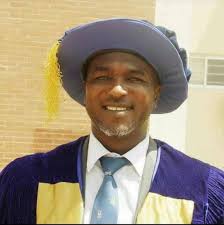
Implement health policies to retain doctors, NMA tells FG
If the Federal Government wishes to keep the few remaining physicians and other health workers in the nation, the leadership of the Nigerian Medical Association has encouraged them to execute the health sector's current regulations, particularly the National Policy on Health Workforce Retention.
According to the NMA, the government only needs to enforce the current policies in order to treat the japa syndrome, which is progressively harming the health sector. No new policies are required.
It would be impossible for Nigerians to retain doctors until the government increases their pay and gives them tools and equipment to work with, according to Prof. Bala Audu, President of the NMA.
August saw President Bola Tinubu ratify the National Policy on Health Workforce Migration to address the challenges facing Nigeria’s health human resources.
Prof. Muhammad Pate, the Coordinating Minister of Health and Social Welfare, revealed this information on his X account. He stated that the policy was a comprehensive approach to control, harness, and reverse the movement of health workers rather than only a reaction to the current flight of healthcare experts.
The major issues affecting Nigeria's health people resources are addressed by the National Policy on Health Workforce Migration. The minister stated, "Mr. President's dedication to a resilient and robust healthcare system is powerfully represented in this forward-looking policy as the AU Champion for Human Resources for Health and Community Health Delivery Partnership.
Speaking on the topic of "Enhancing sustainability and efficiency in Nigeria's private health sector in the quest to reverse medical tourism," Audu recently addressed the NMA Healthcare and Medical Expo in Lagos.
He insisted that rather than enacting new laws, the nation simply needed to put its current policies into action in order to combat the ongoing brain drain in the health sector.
The specialist on maternal health revealed that Nigeria is the world's top exporter of medical experts.
The don emphasised the need to stop the trend, adding that Nigeria loses $2 billion in US dollars a year to medical tourism.
"Nigeria is currently a major contributor to factors in healthcare globally," stated the head of the NMA. First, we send highly skilled labourers to various regions of the world, including nurses, doctors, and other health experts who are specialised and subspecialised in their fields.
Furthermore, we send a large number of patients abroad to receive medical care in other nations, including the UK, the USA, and India. Budgetary and foreign exchange losses are significant.
Professor Audu of obstetrics and gynaecology pointed out that providing equipment and workspace security as part of their compensation would help physicians practise medicine properly.
He observed, "Nigeria will be able to retain its doctors when remunerations are improved." The current policies ought to be put into effect by the government. Policies that are already in place must be put into effect. I'll provide instances of these policies.
The National Policy on Health Workforce Retention is available to us. It consists of multiple parts, such as raising healthcare personnel' wellbeing and compensation.
"This policy's single implementation is sufficient to keep medical professionals on staff and raise our hospitals' retention rates of these professionals, allowing them to devote more time to giving our citizens the best healthcare possible."
The gynaecologist also pointed out that another important aspect that might help stop the brain drain in the industry is the availability of equipment in the country's hospitals.
The government's second task is to guarantee that the instruments and equipment required for patient diagnosis and treatment are conveniently accessible in our healthcare facilities. Additionally, they must be within Nigerians' means, he stated.
The president of the NMA stated that in an effort to counteract medical tourism in Nigeria, Nigerians would no longer leave the nation in search of medical care, thus addressing the brain drain issue.
He continued, "We hope to close this gap in the public and private sectors and draw international patients to Nigeria."
In order to buck the trend, the NMA's leadership also suggested implementing public-private partnerships.
They insisted that the adoption of public-private partnerships in the health sector would enhance sustainability and efficiency.
In his submission, the 1st Vice President of the NMA, Dr Benjamin Olowojebutu, listed the various benefits Nigeria would gain by reversing medical tourism.
Olowojebutu, who is also the chairman of the Expo's local organising committee, promised that working with private institutions and private equity will significantly help to solve the issue.
"Every month, our hospital performs 16 kidney transplants. In a few hours, our hospital is able to perform heart surgery. A hospital is travelling from Mali and Niger to observe our actions, he stated.





